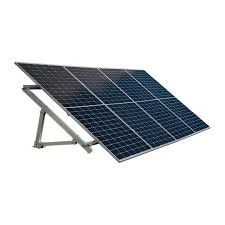solar panel kwh
Understanding Solar Panel kWh A Comprehensive Guide
In the quest for sustainable energy solutions, solar panels have emerged as a popular choice for both residential and commercial applications. As more individuals and businesses transition to solar energy, understanding solar panel kWh (kilowatt-hours) becomes essential. This article explores what kWh means in the context of solar energy, how to calculate it, and its implications for energy production and consumption.
What is kWh?
Kilowatt-hour (kWh) is a unit of energy that represents the amount of electricity consumed or produced over time. It is defined as the amount of energy consumed when a device with a power rating of one kilowatt operates for one hour. For example, if you have a 100-watt light bulb, it will consume 0.1 kWh if left on for 10 hours.
In the solar panel industry, kWh is crucial for measuring the output of solar energy systems. It helps homeowners and businesses understand how much energy their solar panels can generate and how that energy offsets their electricity consumption.
Calculating Solar Panel kWh Production
The amount of energy a solar panel system generates can significantly vary based on several factors, including the panel's efficiency, the angle of installation, shading, and local weather conditions. To estimate the kWh produced by a solar panel system, you can use the following formula
\[ \text{Total kWh} = \text{Panel Wattage} \times \text{Hours of Sunlight} \times \text{Number of Panels} \times \text{Efficiency} \]
For instance, if you have a solar panel system with three 300-watt panels installed in a location that receives about 5 hours of sunshine per day, and the system operates at an efficiency of 80%, the daily output would be calculated as follows
1. Panel Wattage 300 watts per panel x 3 panels = 900 watts 2. Hours of Sunlight 5 hours 3. Efficiency 0.80 (or 80%)
Now plug these values into the formula
solar panel kwh

\[ \text{Total kWh} = 900 \text{ watts} \times 5 \text{ hours} \times 0.80 \approx 3.6 \text{ kWh} \]
This means the solar panel system can produce approximately 3.6 kWh of energy each day under optimal conditions.
The Importance of kWh in Energy Management
Understanding the kWh output of a solar panel system is crucial for effective energy management. Homeowners can compare this output against their energy needs to determine the percentage of their electricity consumption that can be met by solar energy. This comparison helps in calculating potential savings on electricity bills and assessing the return on investment for solar panel installations.
Furthermore, many utility companies offer net metering programs, allowing solar panel owners to send excess energy generated back to the grid. In such cases, understanding how many kWh your system produces can help you estimate your compensation for the energy exported.
Factors Influencing kWh Production
Several factors can influence the overall kWh production of a solar panel system
1. Location and Sunlight Exposure Areas with abundant sunshine will yield higher energy production. 2. Seasonal Variations Solar panel output is often higher in summer months due to longer daylight hours. 3. Panel Orientation and Tilt Properly oriented panels (typically south-facing in the Northern Hemisphere) will capture more sunlight. 4. Temperature While solar panels are designed to harness sunlight, excessively high temperatures can reduce their efficiency.
Conclusion
As the demand for renewable energy continues to rise, understanding solar panel kWh is integral for anyone considering solar energy. By calculating the potential energy output, homeowners and businesses can make informed decisions about adopting solar technology, ultimately leading to reduced energy costs and a smaller carbon footprint. The transition to solar energy not only represents a commitment to sustainability but also a step towards energy independence in an increasingly energy-conscious world.
-
String Solar Inverter: The High-Efficiency Solution for Smart Solar EnergyNewsJul.14,2025
-
Revolutionizing Rooftop Energy with the Power of the Micro Solar InverterNewsJul.14,2025
-
Power Independence with Smart Off Grid Solar Inverter SolutionsNewsJul.14,2025
-
On Grid Solar Inverter: Powering the Future with Smart Grid IntegrationNewsJul.14,2025
-
Monocrystalline Solar Panels: High-Efficiency Power for the Future of Clean EnergyNewsJul.14,2025
-
Bifacial Solar Panel: A Smarter Investment for Next-Generation Energy SystemsNewsJul.14,2025







